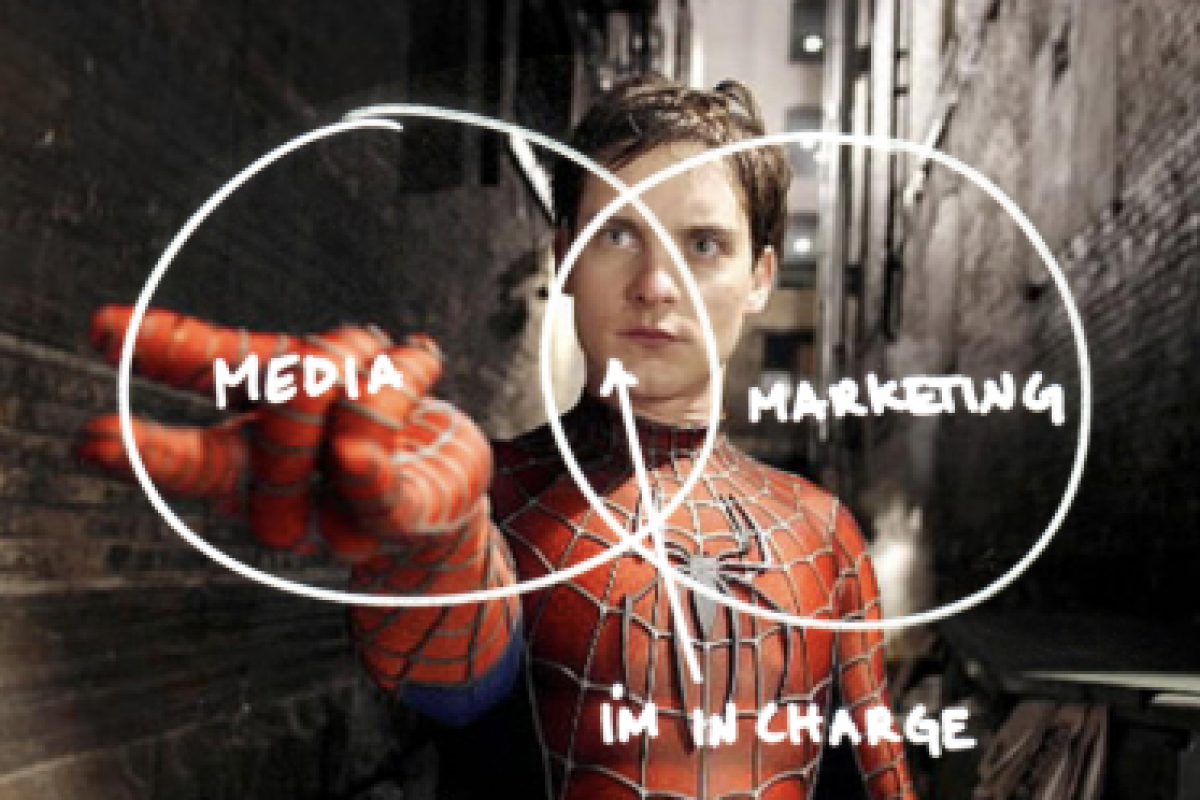The Internet doesn’t care about your marketing. Online pioneer John Gilmore once said, 'The Net interprets censorship as damage and routes around it.' Replace the word censorship with 'your precious sales message,' and you’ve got the same outcome. And yet, people still have problems and desires. They also have these amazingly powerful search and social media tools to find the answers to questions, the solutions to problems, and the perfect satisfaction of just about any desire.
That’s the thing – online, those tools put them in charge, not you. So, smart online marketing is about giving people what they want in a way that leads to sales, because they’ll easily route around you if you don’t.
People want information when making buying decisions. And the more engaging and interesting the information is, the better you’ll do – simply because the odds of it being processed by an easily-distracted human being go way up.
What you need is a media approach, not marketing. Some examples:
Spider-Man to the rescue… of Marvel Comics
I was a Marvel kid growing up. Spider-Man, X-Men, Captain America – these were the characters that fueled my imagination. So when these same characters came back into my adult life through blockbuster films, I was thrilled that they were really well done.
And yet, Marvel was in the throws of complete failure 20 years ago. The iconic comic book publisher was bought and turned around, emerging out of bankruptcy in the late 1990s with a new plan. The X-Men movie franchise began in 2000. But things really busted loose in 2002 with the first Spider-Man movie, which did a combined billion dollars in ticket and DVD sales.
Contrary to what you might think, Marvel only received a tiny fraction of that haul. They had neither the cash nor the expertise to produce films of that caliber, so they took their intellectual property (characters and stories) to the big studios. While they only received a small licensing fee, they also laid out zero cash and took zero risk related to the films.
So what was the strategy?
Merchandise. Marvel sold comic books, video games, t-shirts, toys, and scores of other consumer products. It relied on partnering studios to created multi-million-dollar 'commercials' for its characters – commercials called movies. These 'commercials' were not in the form of advertisements that people wanted to avoid. People paid good money to watch these amazing stories that fueled Marvel’s business model.
In 2009, Disney acquired Marvel for $4.2 billion dollars.
Here’s another example. This one doesn’t involve iconic superheroes.
This realtor attracts business without marketing
There’s a cable reality show called Love it or List It, and it’s a Canadian production that airs in several places, including on HGTV. Each episode involves a home that is not working for the owners. Usually it’s too small for a growing family, poorly configured, hopelessly outdated, or all of the above. The show’s stars are Hilary Farr, a designer, and David Visentin, a realtor.
Hilary takes the budget the owners can manage and works up a plan to redesign the home so it will work again for the family (the 'love it' outcome). David looks for other homes that work as is within the purchasing budget to convince the owners to sell and move (the 'list it' scenario).
So Hilary and David are full-time TV stars, right? Uh, no … not with a niche reality show on basic cable. Both continue to be practicing professionals. David works with his father as a Canadian realtor. He actively sought out the role on Love it or List it by auditioning.
Do you think David gets plenty of new business thanks to the show? You bet. Do you think those new clients feel like they were marketed to like those post cards that stuff the mailbox each month? You get my point. David demonstrates his expertise while reaching prospective customer via a media production that people enjoy watching.
Now, let’s look a one more example, where the exact same dynamic is at play, but no TV show or audition is required.
How to sell a lot of wine
Gary Vaynerchuck owns a wine shop along with his parents in New Jersey. To grow the business, Gary built an online platform called WineLibrary.com, which is an educational resource that naturally helps move product from the shop via e-commerce.
Vaynerchuck then took the next step with Wine Library TV, a self-produced video show starring just him, from a table in the corner of the office above the store. It was DIY media without high production values, but his approach made it all work. Gary turned traditional 'wine talk' on its head, dispensing with elitism and opting for plain-spoken advice and even bombastic commentary on his wine recommendations. The contrast in style made the lower production values an asset instead of a liability.
Gary’s self-produced wine show grew to an audience of more than 100,000 people. More importantly, the wine business grew from $3 million to $45 million.
This is how 'content marketing' should work
Other than the word content, the problem with content marketing is the word marketing. It encourages people to let traditional practices creep in before the prospect is ready for the offer.
Everyone seems to know these days that they’re supposed to create this magical content that works as marketing. But many continue to get it wrong, because they can’t get the foundational rule right:
Give people what they want in a way that relates to what you sell.
Your own approach is limited only by your imagination.
What are you waiting for?
Brian Clark is CEO of Copyblogger Media and the host of New Rainmaker. Read more from Say Daily
